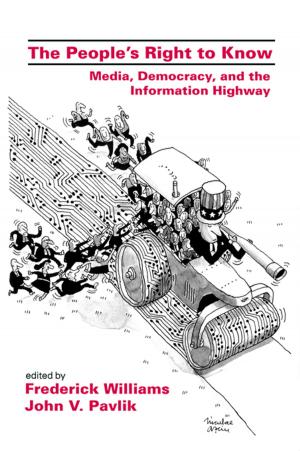The Handbook of Jungian Psychology
Theory, Practice and Applications
Nonfiction, Health & Well Being, Psychology, Psychotherapy, Mental Health| Author: | ISBN: | 9781135480776 | |
| Publisher: | Taylor and Francis | Publication: | October 12, 2012 |
| Imprint: | Routledge | Language: | English |
| Author: | |
| ISBN: | 9781135480776 |
| Publisher: | Taylor and Francis |
| Publication: | October 12, 2012 |
| Imprint: | Routledge |
| Language: | English |
The field of Jungian psychology has been growing steadily over the last twenty years and awareness is increasing of its relevance to the predicaments of modern life. Jung appeals not only to professionals who are looking for a more humane and creative way of working with their clients, but also to academics in an increasingly wide range of disciplines.
This Handbook is unique in presenting a clear, comprehensive and systematic exposition of the central tenets of Jung’s work which has something to offer to both specialists and those seeking an introduction to the subject. Internationally recognised experts in Jungian Psychology cover the central themes in three sections: Theory, Psychotherapy & Applications. Each chapter begins with an introduction locating the topic in the context of Jung’s work as a whole, before moving on to an investigation of contemporary developments and concluding by demonstrating how Jung’s theories continue to evolve and develop through their practical therapeutic applications.
The Handbook of Jungian Psychology is the definitive source of authoritative information on Jungian psychology for Jungian analysts, psychotherapists, counsellors and related professionals. It will be an invaluable aid to those involved in Jungian academic studies and related disciplines.
The field of Jungian psychology has been growing steadily over the last twenty years and awareness is increasing of its relevance to the predicaments of modern life. Jung appeals not only to professionals who are looking for a more humane and creative way of working with their clients, but also to academics in an increasingly wide range of disciplines.
This Handbook is unique in presenting a clear, comprehensive and systematic exposition of the central tenets of Jung’s work which has something to offer to both specialists and those seeking an introduction to the subject. Internationally recognised experts in Jungian Psychology cover the central themes in three sections: Theory, Psychotherapy & Applications. Each chapter begins with an introduction locating the topic in the context of Jung’s work as a whole, before moving on to an investigation of contemporary developments and concluding by demonstrating how Jung’s theories continue to evolve and develop through their practical therapeutic applications.
The Handbook of Jungian Psychology is the definitive source of authoritative information on Jungian psychology for Jungian analysts, psychotherapists, counsellors and related professionals. It will be an invaluable aid to those involved in Jungian academic studies and related disciplines.















